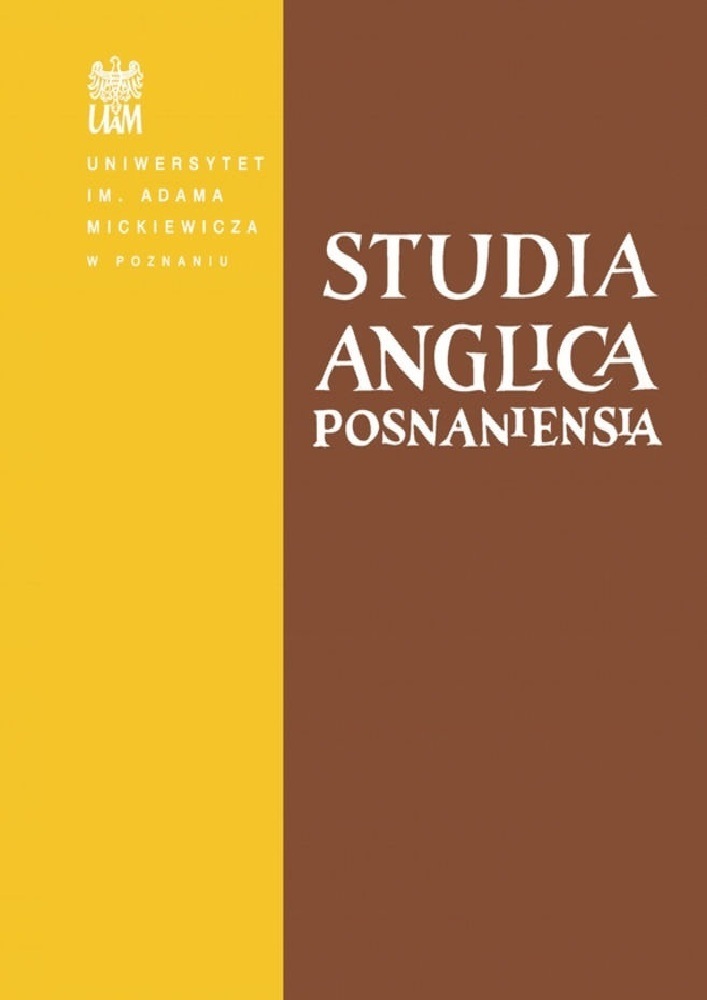Abstract
The paper discusses radicalized aesthetics and politics of structure and form in the experimental autobiographical writing of American avant-garde author Leslie Scalapino. Associated with the innovative protocols of the “Language School” poetry movement, Scalapino’s oeuvre emerges as simultaneously a poststructuralist and phenomenologically oriented poetics in which writing performs a thoroughgoing scrutiny of how one’s implication in linguistic and cultural matrices determines one’s being in the world. Scalapino’s Autobiography, framed by Paul de Man’s remarks on autobiographical writing as always controlled by the external expectations of self-fashioning, sets out to examine and deconstruct the autobiographical project as in itself constructive of one’s life. In Zither the poet complicates her take on life-writing by interrogating and reconceptualizing hidden mechanisms of the genre and confronting it with its own fictional status, while in Dahlia’s iris Scalapino juxtaposes detective fiction with a Tibetan form of written “secret autobiography”, based on a radical departure from the chronology of one’s biography toward a phenomenological horizon of what she refers to as “one’s life seeing”, a practice of attempting to see one’s mind’s constructions as they are formed by the outside as well as by one’s internalization of the outside.
References
Scalapino, Leslie. 1993. Objects in the terrifying tense / Longing from taking place. New York: Roof Books.
Scalapino, Leslie. 1996. Green and black: Selected writings. New Jersey: Talisman House.
Scalapino, Leslie. 1999. New time. Hanover & London: Wesleyan University Press.
Scalapino, Leslie. 1999. The public world / Syntactically impermanence. Hanover & London: Wesleyan University Press.
Scalapino, Leslie. 2003a. Zither & Autobiography. Middletown, CT: Wesleyan University Press.
Scalapino, Leslie. 2003b. Dalia’s iris: Secret autobiography and fiction. Tallahassee, FL: Fiction Collective Two.
Benjamin, Walter. 2002. The arcades project. Cambridge, MA: Belknap Press.
Brewster, Anne. 2004. ‘We’re always at war’: The worlding of writing/reading. An interview with Leslie Scalapino. How2 2(2). https://www.asu.edu/pipercwcenter/how2journal/archive/online_archive/v2_2_2004/current/feature/brewster.htm. (accessed 12 February 2015)
de Man, Paul. 1984. The rhetoric of Romanticism. New York: Columbia University Press.
Frost, Elizabeth & Cynthia Hogue (eds.). 2006. Anthology of contemporary poetry and interviews. Iowa: University of Iowa Press.
Hinton, Laura. 2004. Zither and (autobiographical) introduction: The writings of Leslie Scalapino. How2 2(2).
https://www.asu.edu/pipercwcenter/how2journal/archive/online_archive/v2_2_2004/current/feature/intro.htm. (accessed 20 February 2015)
Kolozova, Katarina. 2014. Cut of the real: Subjectivity in poststructuralist philosophy. New York: Columbia University Press.
